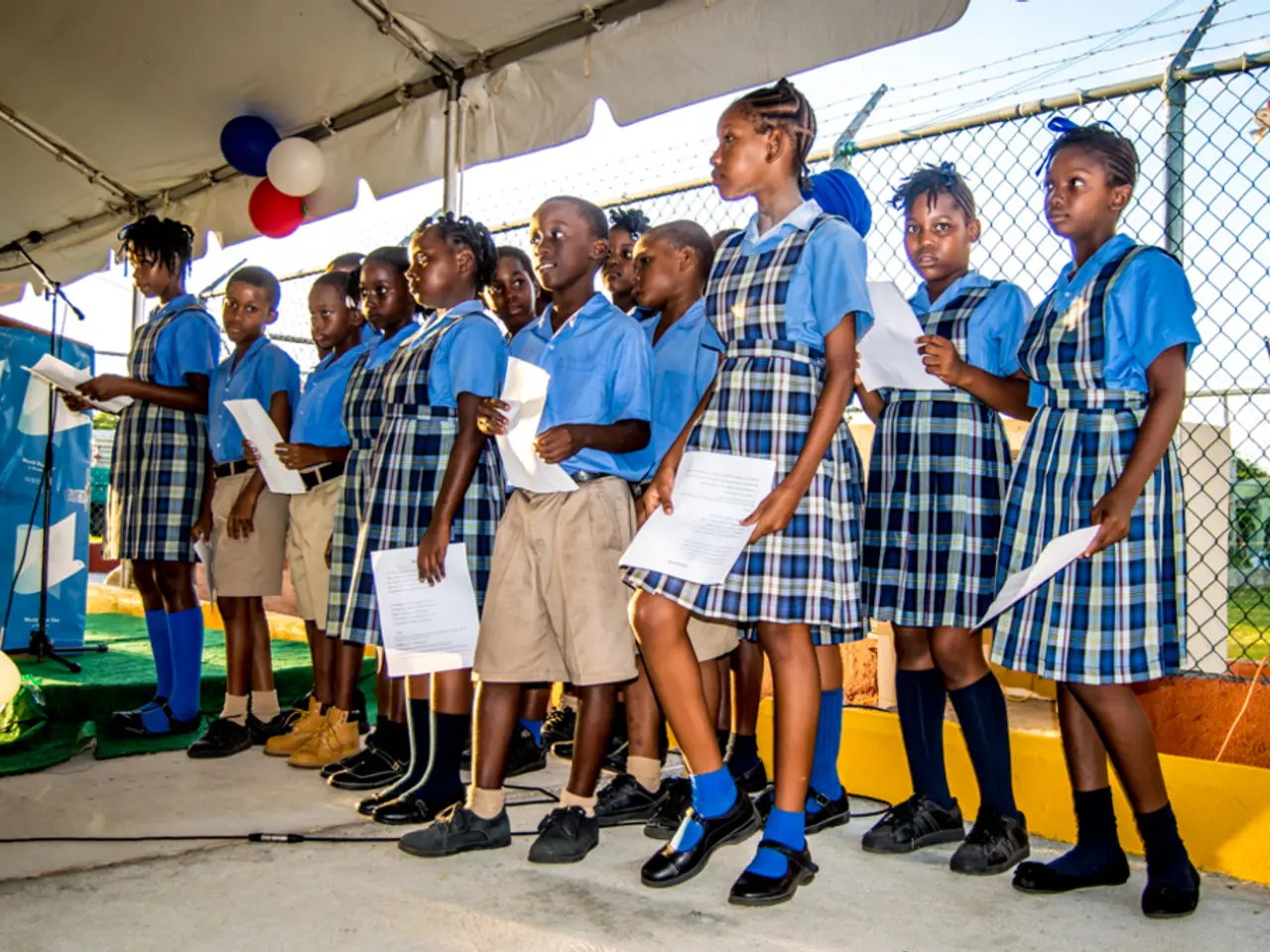Dusseldorf Declares April 30 as the Day of Peaceful Learning: Although strides have been made, more action is required for continued progress
In Germany, the acceptance and use of corporal punishment in child-rearing have significantly decreased since 2005, according to UNICEF Germany and the German Children's Fund. This decline is a reflection of growing awareness of the harms of corporal punishment, as well as legislative changes banning physical punishment in all settings.
Surveys and reports indicate a marked decrease in parental approval and use of corporal punishment compared to 2005 levels. In 2005, over 50 percent of respondents admitted to having used a "light slap", but by 2025, only 14.5 percent found a "light slap" appropriate as an educational method. This shift is a testament to the changing social norms and the impact of legal prohibitions on corporal punishment, which went into effect around 2000.
However, despite these legal bans and the declining social acceptance, corporal punishment remains present in some familial contexts. Child rights organizations, such as the Düsseldorf Children's Fund, continue to call for public education and stronger prevention measures to eradicate corporal punishment completely. The Düsseldorf Children's Fund, which has been advocating for children for 60 years, operates a children and youth telephone service (0800 111 0 550) that provides the largest free telephone counseling service in Germany for children, young people, and parents.
The continuation of corporal punishment is linked to gaps in awareness, cultural norms, and social support. These organizations emphasize the importance of ongoing sensitization campaigns, parenting support programs, and systematic monitoring to change lingering attitudes and practices that tolerate or justify physical discipline of children. In 2025, a study conducted by UNICEF Germany and the University of Ulm showed that approximately two-thirds of respondents reject corporal punishment in child rearing.
Last year, 3,157 children and young people received support through the Düsseldorf Children's Fund's telephone service. The current 87 local providers of counseling telephones are predominantly local associations of the Children's Fund and other welfare associations. The Children's Fund deals with questions related to violence prevention and finding solutions that meet everyone's needs.
The blue elephant is the mascot of the Children's Fund, symbolizing their mission to make children unstoppable. For children and young people, the telephone number 116 111 and the online counseling service at www.nummergegenkummer.de are available. Neglect, physical, psychological, or sexual violence is a part of many children's daily lives and often remains hidden. The consequences of such violence can accompany young people for the rest of their lives.
Dr. Hauke Duckwitz is the chairman of the Children's Fund, leading efforts to protect children's rights and promote non-violent child-rearing practices. The network of local associations operating a children's and youth telephone service in Germany, Number against Sorrow e.V., provides a crucial support system for affected children and young people.
In summary, while significant strides have been made in reducing the acceptance and use of corporal punishment in child-rearing in Germany, efforts are still needed to fully eliminate it. Organizations such as UNICEF Germany and the German Children's Fund continue to advocate for more prevention and education efforts to ensure a future free from corporal punishment.
- The Düsseldorf Children's Fund, a leading organization advocating for children for 60 years, emphasizes the need for ongoing sensitization campaigns, parenting support programs, and systematic monitoring, focusing on education-and-self-development and personal-growth, to challenge and change lingering attitudes that tolerate or justify physical discipline of children.
- In 2025, a study conducted by UNICEF Germany and the University of Ulm demonstrated that approximately two-thirds of respondents reject corporal punishment in child rearing, highlighting the impact of science and education on shaping health-and-wellness and mental-health awareness.
- The current 87 local providers of counseling telephones, predominantly local associations of the Children's Fund and other welfare associations, collaborate to provide support for children, young people, and parents, advocating for a future where all children can experience non-violent child-rearing practices and grow in a safe and healthy environment.




